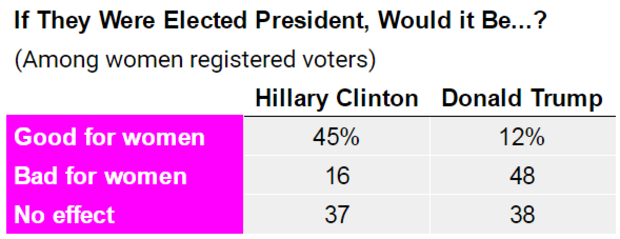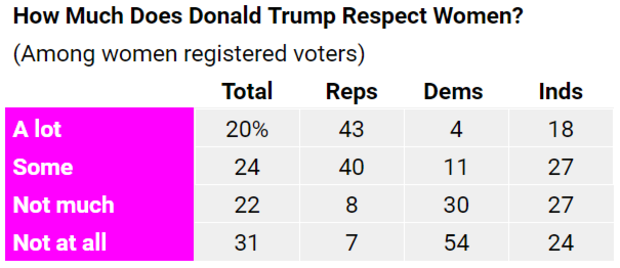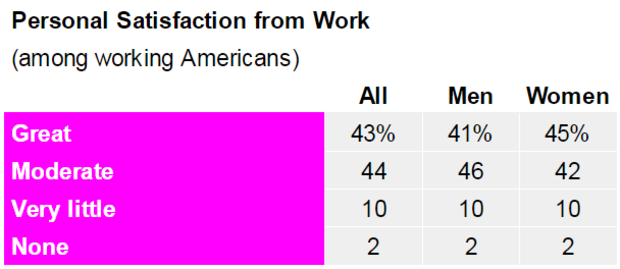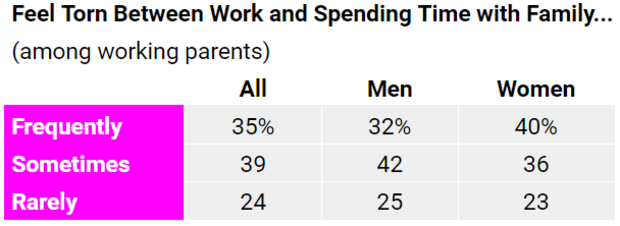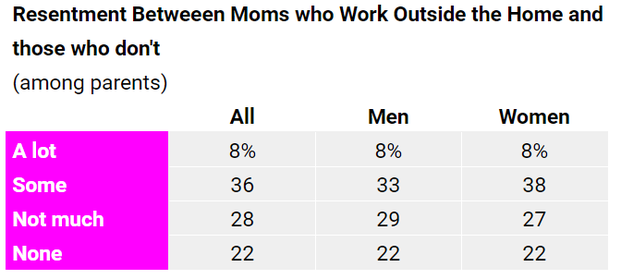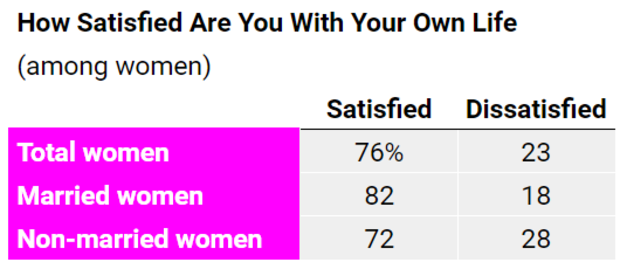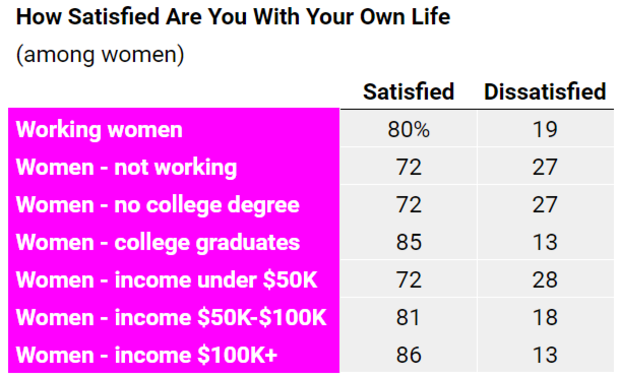Women weigh in on the presidency and on their own lives - CBS/NYT poll
By Sarah Dutton, Jennifer De Pinto, Fred Backus and Anthony Salvanto
There’s Been Progress….But There are Still Challenges
Women feel good about their opportunities to succeed compared to their mothers’ experience. More than 3 in 4 women (77 percent) say their opportunities to succeed in life are better than their mothers’, including majorities of women of all ages, although older women are more likely to feel that way.
Looking ahead, most women are optimistic about the future for American girls; 74 percent say girls’ opportunities to succeed will be better than their own.
Women also see progress in overcoming sexism. 51 percent of women think more progress has been made over the last 20 years in overcoming sexism, while 27 percent say there has been more progress made in overcoming racism.
But women still see obstacles, and fewer men do. Forty-eight percent of women think in today’s society there are more advantages in being a man than in being a woman, compared to 35 percent of men who think that. More than half of men (52 percent) think there are no more advantages in being one gender or the other.
And there have been few changes in these views over the years. This question has been asked in CBS News Polls for over twenty-five years, with small fluctuations in the results.
A Woman Nominee for President
Regardless of how they will vote, most women voters are glad a woman is a major party nominee for president, including 80 percent of Democratic women and 58 percent of independent women. However, most Republican women (54 percent) do not share this sentiment. Most men voters are also glad a woman is a major party presidential nominee.
And 55 percent of women voters who are glad there is a woman nominee are satisfied that Hillary Clinton is the first female presidential candidate for a major party, but 42 percent would have preferred someone else.
Women voters are split as to whether or not Clinton is judged more harshly because she is a woman. Forty-three percent think she is judged more harshly, while 47 percent think being a woman does not affect how most Americans judge her. Views on this are highly partisan. Among men, just 29 percent think she is judged more harshly because of her gender.
Most women – 58 percent - also think that Hillary Clinton is a good role model for women, though that percentage has declined 10 points since before her first presidential campaign in 2008. In July 2007, 68 percent felt she was a good role model.
On balance, women voters tend to think a Hillary Clinton presidency would be good for women (45 percent) rather than bad for women (16 percent). In contrast, nearly half of women voters (48 percent) think a Donald Trump presidency will be bad for women; just one in 10 think he will be good for women if he is elected president.
Among men voters, 41 percent think a Clinton presidency would be good for women, and just 16 percent say the same about a Trump presidency.
Fifty-three percent of women voters don’t think Trump respects women much, including 31 percent who don’t think he respects women at all. Most Republican women think he respects women at least some, including 43 percent who think Trump respects women a lot.
Both candidates are viewed unfavorably by both men and women, though Donald Trump is viewed particularly unfavorably by women, while Hillary Clinton is viewed more unfavorably by men.
Women in the Workplace
When women are asked to volunteer the most important problem facing American women today, the top answer given is equal pay and work place equality -- 30 percent say this is the top issue. Other mentions include sexism (7 percent) and equal rights generally (6 percent), the availability of good jobs (5 percent) and health care issues (5 percent).
Demands for equal pay for women have been around for decades, and Americans’ views of workplace pay reflect the issue’s relevancy. The poll finds that nearly two in three Americans think women are paid less than men who do similar work – and that perception rises to 74 percent among women themselves. Far fewer men – 55 percent - think women are paid less than men for equal work.
Working and non-working women hold similar views, but there are differences by partisanship. Eighty-three percent of Democratic women think women are paid less than men; 64 percent of Republican women agree.
There has been little change in Americans’ perceptions of sexual harassment in the workplace since 1994, and women and men share similar views. Seventy-five percent of Americans, including 71 percent of men and 78 percent of women – think there is at least some sexual harassment of women in the workplace today. Eighteen percent of men and 25 percent of women think there is a lot of sexual harassment of women. Both employed and non-employed women hold similar views.
Many working men and women have bosses of the same gender as themselves. Among those who are working, 62 percent of men say they report to a man, while 51 percent of women report to a woman. Majorities of both men and women say it doesn’t matter to them whether they work for a man or a woman.
Why They Work
While 77 percent of working men report they are the main wage earner in their household, just 51 percent of working women say the same. Thirty-six percent of women say their extra income helps them afford more for their household.
Just under half of women say that their job provides them with great personal satisfaction, and another 42 percent say it gives them moderate satisfaction.
Satisfaction rises with age: 52 percent of women age 45 to 64 and 61 percent of those 65 and over report they derive great personal satisfaction from work. In addition, women with college degrees and those with household incomes of $100,000 or more are more apt to say work provides great satisfaction.
But fewer women than men think a leadership role is in their future; just 31 percent of women say they see themselves as ever being a leader in business or government. Men are much more likely to envision their future as a leader (46 percent).
Women under age 45, college graduates and those with higher incomes are most likely to see themselves as future leaders.
Work and Family Life
Most working parents find themselves torn between the demands of their job and spending time with their family, including 35 percent who say that happens frequently. It is a factor in more working women’s lives than men’s: 40 percent of women, and 32 percent of men, say they feel the conflict between work and parenthood frequently.
Younger women, and women with lower incomes, are most likely to report feeling this conflict.
About four in ten parents, and 46 percent of mothers, say there is at least some resentment or hostility between mothers who work outside the home and those who don’t. However, few say there is a lot of resentment.
Women are Mostly Optimistic About Their Lives
Seventy-six percent of women in the U.S. say they are satisfied with the way things are going in their lives these days, although just about a third say they are completely satisfied.
Majorities of women across demographic groups are at least somewhat satisfied, and some socioeconomic factors may influence that. Women with a college education and those with higher household incomes are more satisfied than women without a college degree and lower incomes. In addition, equal majorities of white women and black women say they are satisfied with their lives today.
Marriage and Children
Marriage and children are important to both men and women – either now or in the future - but men are more likely than women to say being married is very important to them. Fifty-eight percent of men say it’s very important, compared to 47 percent of women.
About three in four men and women say being a parent is very important to them.
How Women View Themselves vs. How Society Views Them
The poll asked women how important certain traits are to their self-perception. Women are most likely to say their education (81 percent) and success at work (78 percent) are very important to how they view themselves. Religion and spirituality and appearance are still important but less so.
But many women also think appearance plays a very important role in how society views their gender. Seventy-one percent of women think appearance is very important in how a woman is perceived by others, compared to just 53 percent of women who say their appearance is very important to how they view themselves personally.
While many working women say their success at work is very important in how they perceive themselves, they are less likely to think others in society value that.
Women and the 2016 Race for President
With Election Day just under eight weeks away, there is a sizable gender gap among likely voters. Donald Trump leads Hillary Clinton 50 - 39 percent among men, while Clinton is ahead 52 - 39 percent among women.
Party identification factors greatly into who women support for president. Eighty-eight percent of Democratic women support Hillary Clinton for president, while 82 percent of women who identify as Republican are supporting Donald Trump – similar to the margins seen among male voters. But while independent men choose Trump (47 percent) over Clinton (32 percent) by 15 points, independent women favor Clinton by a 13-point margin.
There are other differences. While the race is tight among married women, and women without a college degree, Clinton has a strong lead among non-married women and women who are college graduates.
This poll was conducted by telephone September 9-13, 2016 among a random sample of 1,770 adults nationwide, including 865 women and 965 men. Data collection was conducted on behalf of CBS News and The New York Times by SSRS of Media, PA. Phone numbers were dialed from samples of both standard land-line and cell phones.
The poll employed a random digit dial methodology. For the landline sample, a respondent was randomly selected from all adults in the household. For the cell sample, interviews were conducted with the person who answered the phone.
Interviews were conducted in English and Spanish using live interviewers.
The data have been weighted to reflect U.S. Census figures on demographic variables.
The error due to sampling for results based on the entire sample and the sample of registered voters could be plus or minus three percentage points. The margin of error for the sample of women and the sample of men is 4 pts. The error for subgroups may be higher and is available by request. The margin of error includes the effects of standard weighting procedures which enlarge sampling error slightly.
This poll release conforms to the Standards of Disclosure of the National Council on Public Polls.






